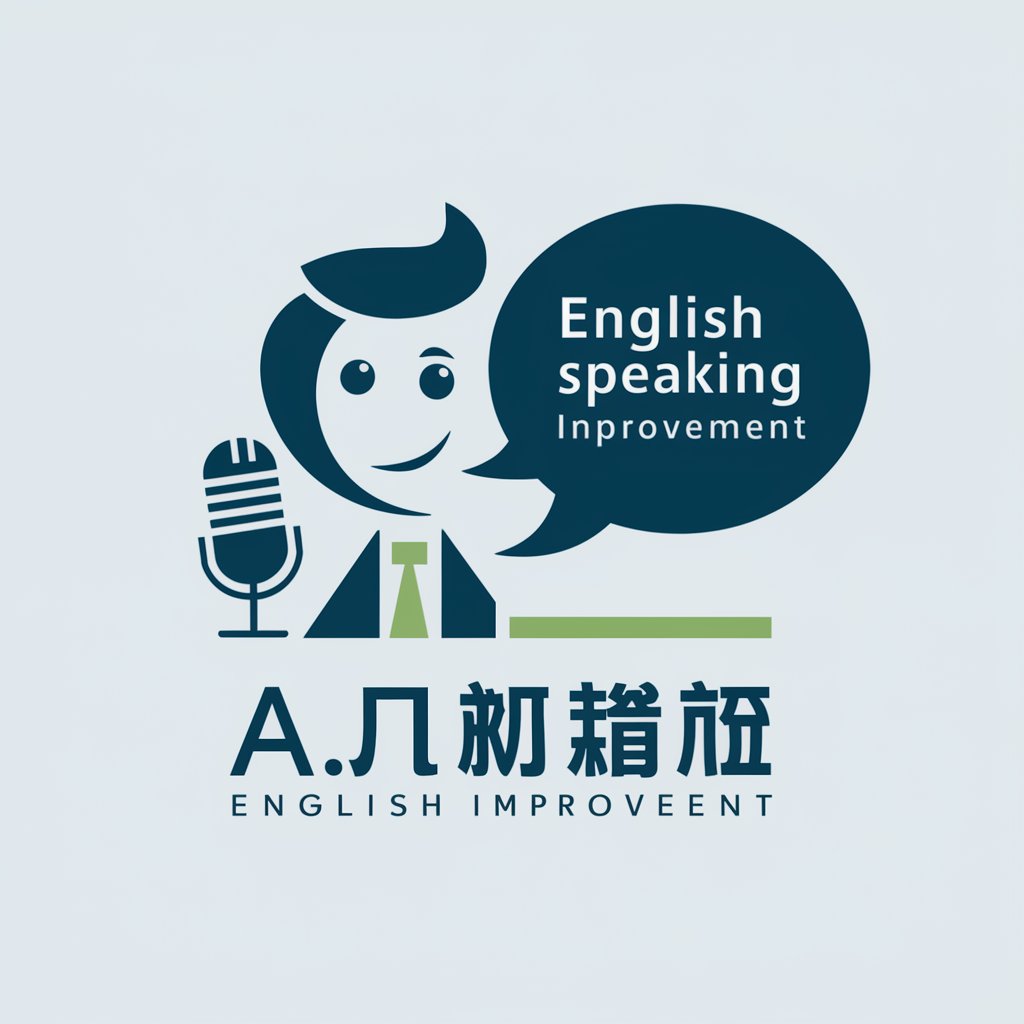5 GPTs for Fluency Practice Powered by AI for Free of 2025
AI GPTs for Fluency Practice are advanced artificial intelligence tools designed to enhance language learning and proficiency. By leveraging Generative Pre-trained Transformers (GPTs), these tools provide personalized and interactive experiences for users seeking to improve their language fluency. They adapt to various tasks and topics within the fluency practice domain, offering tailored solutions that range from basic conversational practice to complex linguistic challenges. The role of GPTs in this context is pivotal, as they employ sophisticated algorithms to simulate real-life interactions, making language learning more engaging and effective.
Top 5 GPTs for Fluency Practice are: Magic School - Super Teacher Support,토익 스피킹,Dyslexia Reading Support,ESL Hrvatska SpeakWise 2.1 - Practise English!,英語スピーキング改善くん
Magic School - Super Teacher Support
AI-powered platform for English fluency

토익 스피킹
AI-powered English speaking practice.

Dyslexia Reading Support
Empowering Readers with AI

ESL Hrvatska SpeakWise 2.1 - Practise English!
Master English with AI Support

英語スピーキング改善くん
Enhance Your English with AI-Powered Feedback

Key Attributes and Functionalities
AI GPTs for Fluency Practice boast several unique features that set them apart. These include adaptive learning paths that adjust to individual user progress, real-time feedback on language use, and the ability to simulate diverse conversational scenarios. Moreover, some tools incorporate advanced capabilities like voice recognition to further enhance the learning experience. Specialized functions also extend to support in technical language acquisition, web searching for language learning resources, image-based language tasks, and detailed analytics for tracking progress.
Who Benefits from Fluency Practice Tools
The primary beneficiaries of AI GPTs for Fluency Practice encompass a wide range of users, from language learning novices to professionals seeking to refine their linguistic skills. These tools are designed to be user-friendly, requiring no coding skills for basic use, yet they also offer extensive customization options for developers and tech-savvy users. This dual approach ensures that anyone with an interest in language improvement can find value in these tools, regardless of their technical background.
Try Our other AI GPTs tools for Free
Cultural Variations
Explore AI GPTs tailored for Cultural Variations, designed to understand and generate culturally nuanced content. Perfect for professionals and novices aiming for cultural sensitivity.
Subconscious Mind
Discover AI GPT tools designed for exploring the subconscious mind, offering intuitive insights and support for personal and professional growth.
Gallery Curating
Discover how AI GPTs revolutionize gallery curating with tailored solutions for exhibition planning, artwork analysis, and visitor engagement, making curatorial tasks more efficient and accessible.
Computer Science
Explore AI GPT tools tailored for Computer Science, offering solutions from code generation to personalized learning, accessible to all skill levels.
Programming Tasks
Discover how AI GPTs for Programming Tasks revolutionize coding with adaptable, user-friendly tools designed for novices and experts alike, enhancing productivity and innovation.
RPG Narration
Explore AI GPT tools for RPG Narration, designed to elevate role-playing games with dynamic, AI-generated narratives that respond to player decisions, enhancing the storytelling experience.
Further Perspectives on Customized Solutions
AI GPTs for Fluency Practice are not only about language learning; they represent a broader shift towards personalized education. These tools can be integrated into existing learning management systems or workflows, providing seamless support for language acquisition. The user-friendly interfaces ensure that learners can focus on improving their skills, while the backend technology adapts to offer the most effective learning experience.
Frequently Asked Questions
What exactly are AI GPTs for Fluency Practice?
AI GPTs for Fluency Practice are sophisticated tools designed to aid in language learning and improvement, utilizing advanced AI to simulate natural conversations and provide feedback.
How do these tools adapt to my learning pace?
These tools use machine learning algorithms to assess your progress and adapt the difficulty level and topics of conversation to match your evolving language skills.
Can I use these tools without any programming knowledge?
Yes, these tools are designed to be accessible without any coding skills, providing a user-friendly interface for all learners.
Are there options for advanced customization?
Absolutely. For those with programming knowledge, many tools offer APIs and scripting options to tailor the learning experience further.
How do these tools help with language fluency?
By providing interactive conversations, real-time feedback, and personalized learning paths, these tools significantly enhance language comprehension, speaking, and fluency.
Can I practice technical language or jargon?
Yes, some tools offer specialized modules for learning technical language or industry-specific jargon.
Do these tools offer progress tracking?
Many tools come with analytics features that allow you to track your progress over time, identifying strengths and areas for improvement.
Are there any tools that support voice recognition?
Yes, certain AI GPTs for Fluency Practice incorporate voice recognition to enhance speaking practice, offering feedback on pronunciation and intonation.